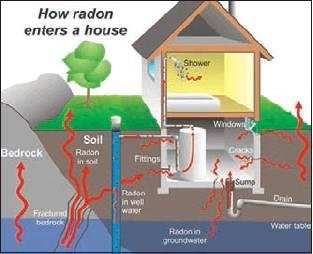Does a silent killer stalk your family?
It may be in your home and you don’t even know it.
It’s not a zombie or some other TV creature, but it causes 20,000 lung cancer deaths a year, according to the Environmental Protection …
This item is available in full to subscribers.
Subscribe to continue reading. Already a subscriber? Sign in
Get 50% of all subscriptions for a limited time. Subscribe today.
Please log in to continueNeed an account?
|
Does a silent killer stalk your family?
It may be in your home and you don’t even know it.
It’s not a zombie or some other TV creature, but it causes 20,000 lung cancer deaths a year, according to the Environmental Protection Agency
To coincide with National Radon Action Month, the SC Department of Health and Environmental Control encourages you to become familiar with the risks of radon when it’s present inside homes.
Radon is an invisible, odorless,tasteless gas that naturally exists outdoors but can be harmful when too much is trapped inside your home.
Radon comes from the natural breakdown of uranium in soil, rock and water, and it finds its way into homes through cracks and holes in the foundation, construction joints and plumbing fixtures.
Any home can have a radon problem, and elevated levels of radon have been found in homes in almost every county of South Carolina.
“The only way to know if a home has high radon levels is to perform a test,” said Rhonda Thompson, DHEC’s Bureau of Air Quality Chief. “Two homes right next to each other can have different radon levels.”
DHEC has a limited number of free home radon kits that residents can use to test their homes. Test kits also may be purchased for about $15 from the National Radon Program.
Residents should closely follow the directions to receive accurate results. If the test kit indicates high levels of radon, the EPA recommends contacting a certified radon mitigation provider to review methods for preventing radon from entering a home.
“South Carolina has nationally certified radon professionals who can measure radon levels and help fix homes with elevated radon levels,” said Leslie Coolidge, DHEC’s South Carolina Radon Program Coordinator.
“We provide a list of these radon professionals on the DHEC website.”
To request a free home test kit and to learn more about radon, visit www.scdhec.gov/radon . To purchase a test kit from the National Radon Program, visit www.sosradon.org or call 1-800-767-7236.
Other items that may interest you







Comments
No comments on this item Please log in to comment by clicking here